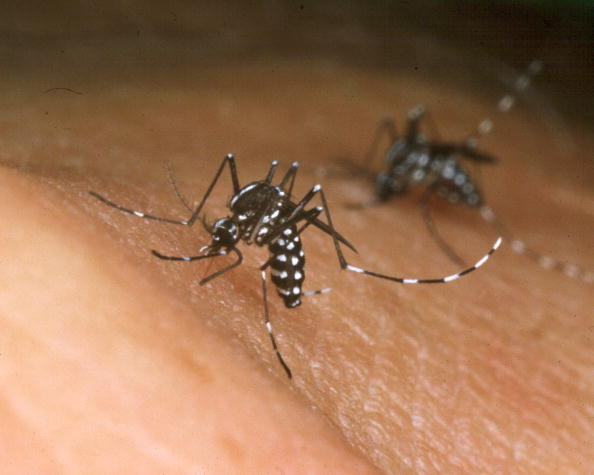-
Tips for becoming a good boxer - November 6, 2020
-
7 expert tips for making your hens night a memorable one - November 6, 2020
-
5 reasons to host your Christmas party on a cruise boat - November 6, 2020
-
What to do when you’re charged with a crime - November 6, 2020
-
Should you get one or multiple dogs? Here’s all you need to know - November 3, 2020
-
A Guide: How to Build Your Very Own Magic Mirror - February 14, 2019
-
Our Top Inspirational Baseball Stars - November 24, 2018
-
Five Tech Tools That Will Help You Turn Your Blog into a Business - November 24, 2018
-
How to Indulge on Vacation without Expanding Your Waist - November 9, 2018
-
5 Strategies for Businesses to Appeal to Today’s Increasingly Mobile-Crazed Customers - November 9, 2018
Malaria MDG target achieved amid sharp drop in cases and — UNICEF report
There are still some areas where malaria is still a huge problem, in the past year there have been about 214 million cases of malaria from which 438,000 deaths occurred.
Advertisement
Children under five are especially vulnerable to the disease, accounting for two-thirds of all malaria related deaths.
UNICEF report, experts also said that a crucial Millennium Development Goal to halt and begin to reverse the incidence of malaria by 2015 has been met “convincingly”, with new cases of the parasitic mosquito-borne disease down by 37 percent since 2000.
This is being called as “one of the greatest public health success stroes of the past 15 years” by WHO Director Margaret Chan.
The report said an increasing number of countries were on the verge of eliminating malaria.
The studies authors told the BBC that their findings were an “optimistic” message for the fight against malaria as a whole, but said that the rate of improvement was slowing globally, with cases falling by 9 percent a year until 2011, but only dropping 5 percent in the years since.
“It’s a sign that our strategies are on target, and that we can beat this ancient killer, which still claims hundreds of thousands of lives, mostly children, each year”, Chan said. “You either surge ahead or you sink”, she said, noting that children under five still make up the overwhelming majority of malaria victims.
It quoted Justine Greening, the Secretary of State for international Development of the United Kingdom as saying, “A healthy, prosperous world is in all our interests”.
Despite the good news, former Namibian health minister and malaria campaigner Richard Kamwi warned at the London presentation that the “biggest mistake we can make is to pat ourselves on the back”.
Researchers said that the number of infections has fallen by 50% in the continent, a dramatic shift thanks to large-scale funding of prevention and treatment. Officials are warning about a rare mosquito invading the West Coast that has been known to carry Dengue fever and other diseases abroad.
Bed nets, for example, are widely considered a cheap and effective intervention; approximately 900 million such nets were distributed in sub-Saharan Africa between 2004 and 2014.
Advertisement
A new 15-year plan for malaria control has been developed, aiming to reduce global malaria incidence by 90% by 2030. To accomplish this, the organisation estimates global funding for combating the disease will have to increase from the $US2.7 billion that’s spent today to $US8.7 billion in 2030.





























